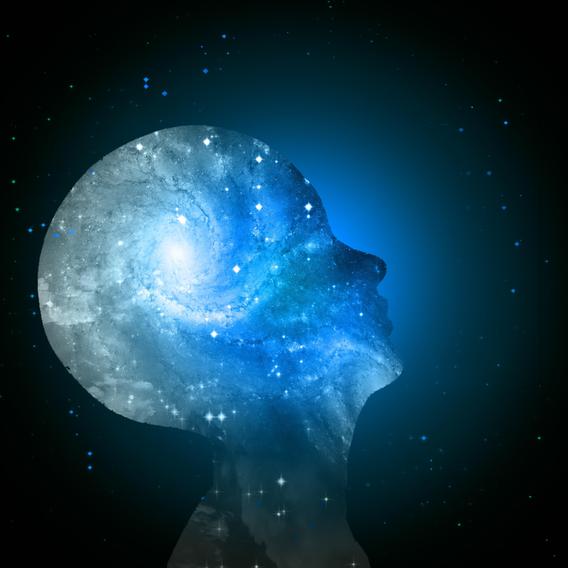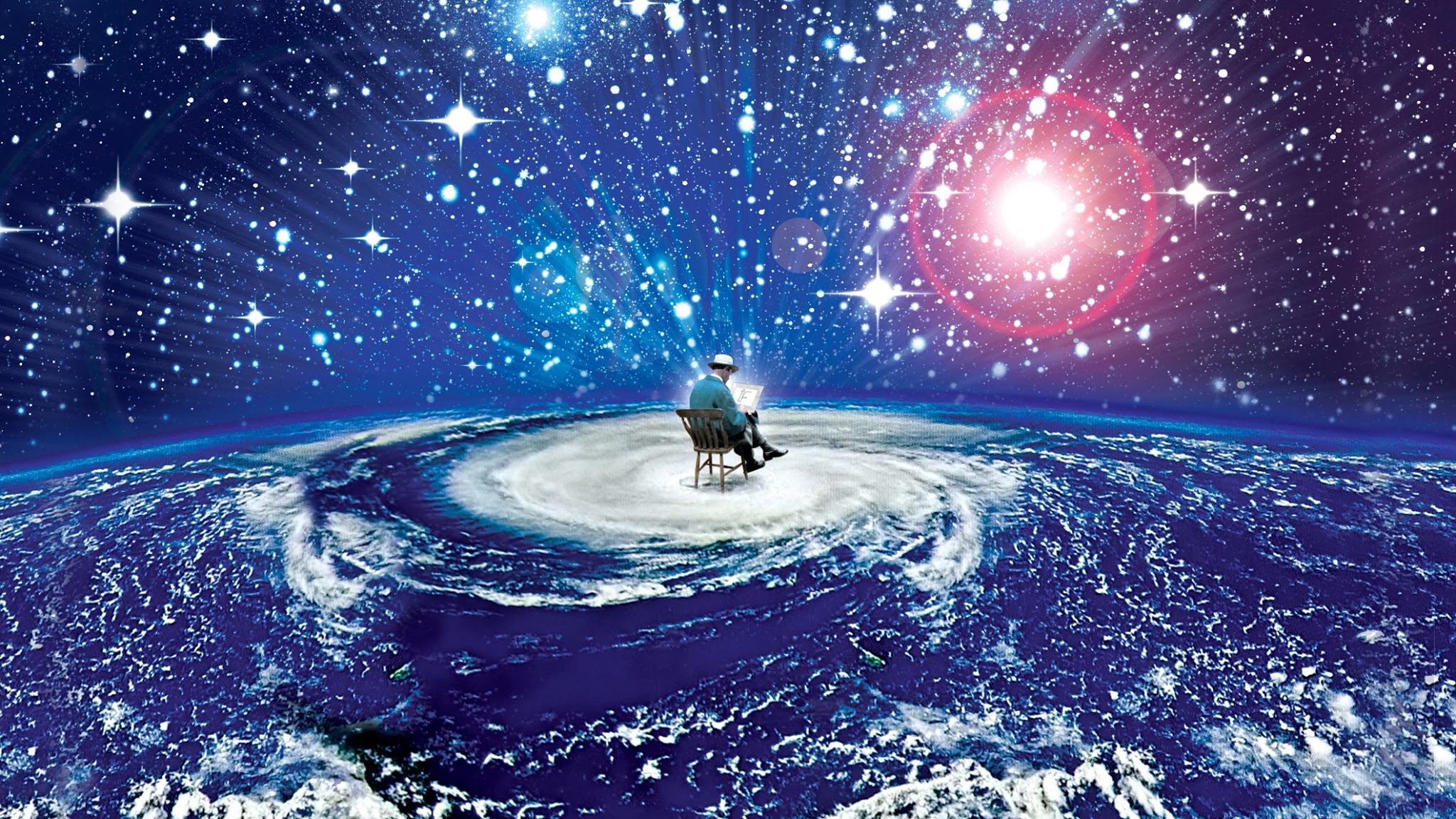A large, brown, stipple-winged hawk takes off from the path ahead of me with a small animal in its mouth. It’s near dusk, and the parkland seems to be full of Cooper’s hawks.
 Another hawk, perched on a branch overhanging the park road, drops from the limb and screeches as it glides in straight, level flight above the road. A few minutes later, a couple walking ahead of me stop and turn around to watch a raptor alight high in a sycamore tree. We exchange a few words about how many hawks are around today.
Another hawk, perched on a branch overhanging the park road, drops from the limb and screeches as it glides in straight, level flight above the road. A few minutes later, a couple walking ahead of me stop and turn around to watch a raptor alight high in a sycamore tree. We exchange a few words about how many hawks are around today.
For 20 minutes during a sitting by the stream, a gray squirrel chatters away in a tree behind me. Consciousness is like that squirrel prattling on. It isn’t concentration, but inclusive, undirected attention that quiets the mind.
A hundred meters up the path I pass two college-age couples talking non-stop as they imbibe at a picnic site adjacent to the footbridge. In the time it takes me to go by, one of the young women changes subjects about shopping three times, without appearing to take a breath.
The meditative state cannot truly begin until the mind/brain lets go of everything. No trick or technique can cause it to do so. Only undivided observation loosens the bondages and erases the grooves of thought.
Why is it so difficult to let go completely? What is it about the human mind that keeps us attached to beliefs, people and problems? Is it memory?
It appears as though the brain, using thought, is wired to attach itself to things. Is attachment in the nature of the brain itself?
Obviously attachment is a function of thought and the self. As long as there is the emotionally held idea of a separate self—me, myself, and I—there is attachment with all its problems.
Attachment and the self clearly go hand in hand. The self requires attachment to sustain identity, and attachment requires separate identity to sustain the sense of me and mine.
The expression, ‘my thoughts,’ is not merely redundant—it is existentially and neurologically erroneous. And yet the ‘me’ seems to have tremendous validity, and even neuroscientists, who have shown that the self is merely an operating program of thought, venerate the self and thought.
In actuality, there is no separate entity that stands apart from anything. Then why is the illusory separate self so strongly embedded in the brain? Why isn’t experience normally perceived as an unbroken flow of inner and outer movement, rather than filtered through a center constructed by thought?
A separate self that interprets, judges, evaluates and acts from conditioning seems to be an unchangeable part of being human. But if it is, there is no hope for the individual or humanity.
The ancient habit of psychological separation and identification begins with ‘me’ and extends to ‘my family’ and ‘my country,’ sowing division that generates conflict and war.
There is no chaos I nature, only in thought. Is that why the human brain, dominated by thought, fabricates a separate self—to bring some kind of order to the chaos of thought? The brain records experience, and a program called ‘me’ subconsciously selects and screens what one’s conditioning deems important.
Apparently as humans evolved conscious thought, the survival instinct became linked to concepts of identity. Instead of realizing that ‘I am thought, and thought is not actuality,’ there was the subconscious and emotionally held idea that ‘I am a separate entity, me.’
So separate selfhood, survival, attachment, permanence and fear of death became intertwined, and formed the psychological basis of what we call consciousness.
Thought-dominated consciousness has become utterly dysfunctional, both individually and collectively. So why is there so little insight into the nature of thought, and why is observing the movement of the mind-as-thought into stillness, which begins with the ending of the illusion of the separate observer, so rare?
Authentic meditation, which has nothing to do with methods, techniques and traditions, awakens another order of consciousness altogether. One begins by ending division in observation. By watching the watcher (that is, one’s judgments and interpretations), awareness quickens and gathers. Unwilled and undirected attention acts on the movement of thought, and the mind falls silent.
Psychological thought is a single, increasingly muddy and destructive tide, flooding everything as it divides us from nature and our humanity.
When, through self-knowing and right observation, the habit of division ends, the known stops smothering the mind and heart, and “there is the peace that passes all understanding.”
Martin LeFevre

